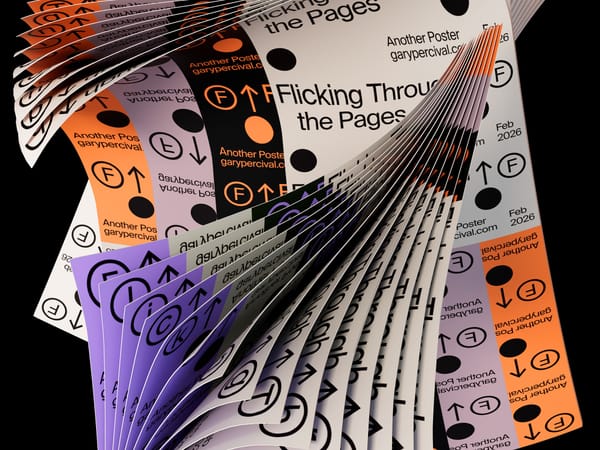Old Scripts, New Authors
“You are not the story you inherited. You are the author of what comes next.”

As creatives, we pride ourselves on originality. We chase fresh ideas, build new worlds from scratch, and turn blank pages into something meaningful.
Ironically, some of the most powerful scripts guiding our work and lives weren’t written by us at all.
They were inherited.
From our parents. Our upbringing. Our early teachers. The first boss who shaped our sense of worth. The family narratives that quietly defined what was “responsible,” “good,” or “realistic.” These scripts are old, but they’re still running—often without us even noticing.
And if we’re not careful, we spend decades acting out scenes written by someone else.
The Inherited Storylines We Don’t Question
You may not remember the first time you heard it, but chances are you’ve internalised a version of it:
- “Art isn’t a real job.”
- “Money is hard to come by.”
- “Don’t speak up too much—you’ll make things awkward.”
- “Stick to what you know.”
- “Be humble. Don’t show off.”
- “Security matters more than creativity.”
- “You should be grateful just to be hired.”
These beliefs sound like life advice. But often, they’re fear wearing wisdom’s clothes. Passed down with good intentions—but not always leading to good outcomes.
And if you’re a freelancer or creative, these messages can quietly dictate how you price your work, how you present yourself, whether you pitch the bold idea, or whether you ever hit “publish” on that personal project.
Scripts That Shape the Studio
Let’s bring it into the creative studio.
Ever hesitated to quote your true rate because it felt “too much”? That’s likely a script.
Ever downplayed your ideas in meetings? Script.
Avoided pursuing an opportunity because “people like me don’t get picked”? Script.
These aren’t about capability. They’re about conditioning.
We grow up in households and communities that model beliefs about work, money, relationships, creativity, and risk. And because we’re young when we absorb them, they settle in like default settings.
You might not believe them consciously anymore—but unconsciously? They still whisper in the background.
Reenacting or Rewriting
The question isn’t whether you inherited scripts. It’s:
Which one are you reenacting—and is it serving you anymore?
Sometimes, we carry the belief that sacrifice equals virtue. That burnout is proof of commitment. That struggling makes you “legit.”
Other times, we carry scarcity thinking: that there’s never enough work, that raising your price is selfish, and that being liked matters more than being respected.
These beliefs are like lines in a play.
We hit our cues. We don’t question the direction.
But the creative life asks more of us.
It asks us to improvise. To question. To edit.
It asks us to become authors—not just actors.
Why It’s So Hard to Break Free
It’s tempting to think we can just rewrite a script once we notice it. But these patterns are sticky—because they gave us something once.
Maybe playing small kept us safe.
Maybe being agreeable helped us feel loved.
Maybe undervaluing our work made us feel needed.
Maybe overworking earned approval.
To step out of those stories means losing those comforts—and that’s uncomfortable. You may feel guilt, anxiety, and even grief. But that’s part of the process. Because rewriting doesn’t mean erasing the past. It means choosing what stays and what goes.
You can thank the old script for getting you this far—and still choose a better one going forward.
Signs You’re Running an Old Script
Want to know if an inherited belief might be running the show? Look for these signals:
- You shrink your ideas before anyone else does
- You delay launching something because “it’s not ready yet”
- You feel guilty charging more, even when your skills have grown
- You accept less-than-ideal projects because “work is work”
- You hesitate to take creative risks unless someone approves
- You define success by what your parents or peers would admire—not what actually fulfils you
These aren’t personality traits.
They’re signs of a script.
New Author, New Ending
The good news? You can rewrite.
The page is yours now.
Here’s what that might look like:
- From “I need permission” to “I trust my instinct”
- From “Good work is its own reward” to “Good work deserves fair pay”
- From “Stay grateful” to “Stay discerning”
- From “It’s too risky” to “It’s riskier to stay stuck”
Every time you say no to a low-budget project…
Every time you say yes to your weirdest idea…
Every time you speak your price without apology…
Every time you pursue your definition of success, not someone else’s…
You’re not just freelancing.
You’re rewriting generational patterns.
You’re choosing authorship.
This Is Bigger Than You
When you rewrite the script, you don’t just liberate yourself.
You change the future script for others.
For the next designer watching you hold your boundaries.
For your kids seeing you rest without guilt.
For the younger version of you who didn’t know they had a choice.
This is why your creative courage matters.
It’s why healing your mindset is part of the work.
It’s not selfish. It’s legacy work.
You don’t have to carry the weight of old beliefs.
You can put them down.
You can write new ones.
Bold ones.
Freeing ones.
So… What Script Are You Still Following?
If you’re feeling stuck, overwhelmed, or like your work never quite feels like yours—this might be why.
Take a moment to ask:
- Whose approval am I still trying to earn?
- What rule am I following that I never agreed to?
- What story about success, money, or creativity might I be reenacting?
- What would a new version of that story sound like?
Write it down.
Speak it aloud.
Then go live it—one creative decision at a time.
Final Thought: Be the Author
You are not the story you inherited.
You are the author of what comes next.
So edit bravely.
Cross out the lines that don’t fit anymore.
Write the words your younger self needed to hear.
And keep writing until your life feels like your own.



